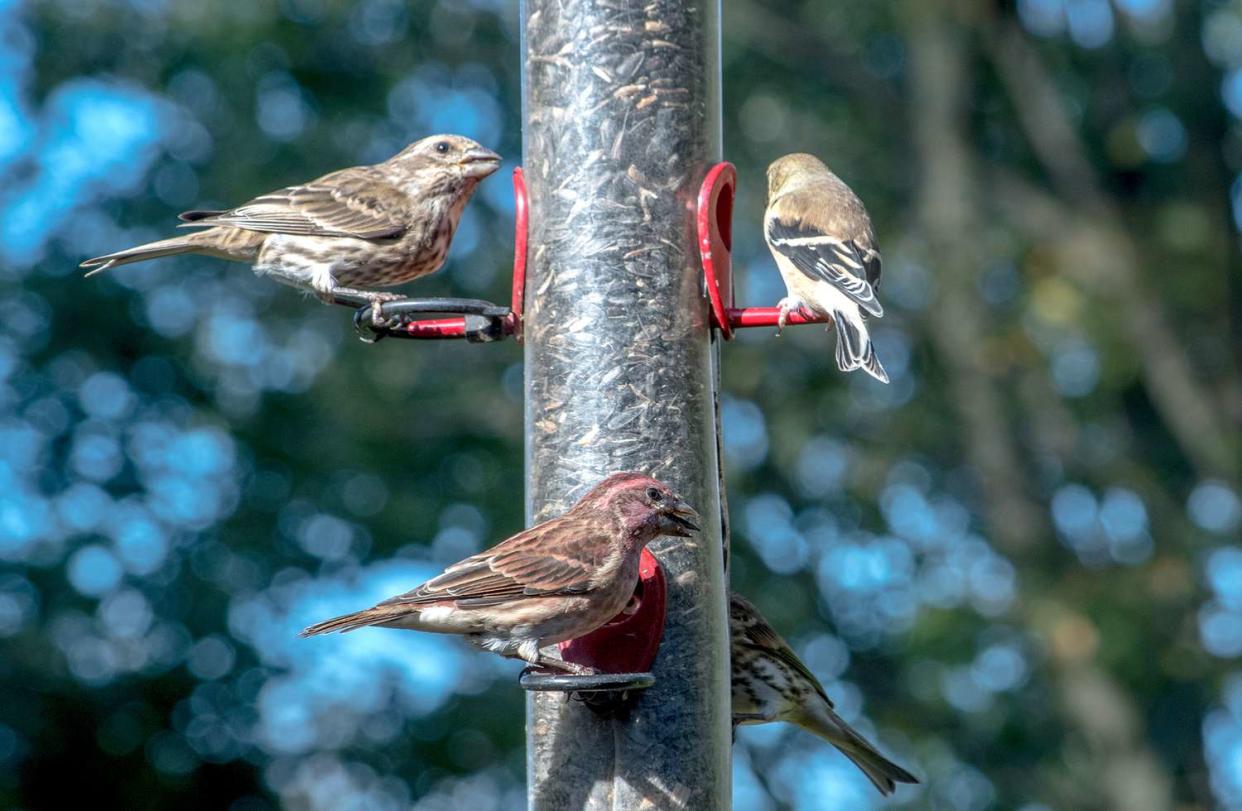Vet Expert Explains Why the Current Avian Flu Outbreak Has People Removing Their Bird Feeders

Getty
The current avian flu outbreak is responsible for millions of bird deaths in 2022.
According to the U.S. Department of Agriculture (USDA), the outbreak of Highly Pathogenic Avian Influenza (H5N1) has led to over 23 million bird deaths in 24 states. The bird flu surge has also temporarily shut down the aviaries in many U.S. zoos and has sickened zoo birds.
In response to the spread of avian flu across the U.S., some states are asking residents to remove their bird feeders from outside to prevent birds, especially migratory species, from congregating and spreading avian flu.
The Department of Natural Resources for both Michigan and Illinois have issued recommendations to residents to remove their bird feeders. To learn more about why wildlife experts suggest this action as a precaution, PEOPLE reached out to Dr. Gail Hansen, DVM, MPH, of the Humane Society Veterinary Medical Association — a part of the Humane Society of the United States.
"The Highly Pathogenic Avian Influenza is spread in the droppings and respiratory secretions of infected birds and can be easily transmitted on objects contaminated with virus particles. The virus is tough and can survive cold and freezing temperatures," Dr. Hansen said of why some state departments may ask people to remove birdfeeders.
RELATED: Illinois Authorities Suspect Avian Flu Outbreak Killed 200 Birds Found Dead at Forest Preserve
"Bird feeders encourage different types of birds to gather together where the virus could easily be exchanged between them, and the shared surfaces may continue to harbor the virus for a time," she added.
According to Dr. Hansen, it is not known "whether songbirds can spread the disease or the role that they play in influenza outbreaks," and is it because of this uncertainly and the aggressive spread of the current bird flu outbreak that "the USDA, wildlife officials, and others recommend people remove bird feeders for now."
The veterinarian also said animal lovers should not worry about birds going hungry without feeders, as the "warmer springtime weather" will provide "more natural food sources." Hence, there is less dependency on bird feeders.
RELATED: 2 Bird Flu Cases Confirmed in U.S. Zoos, Officials Say Infected Birds Won't Be Euthanized
While it is not known how songbirds are affected by the current avian flu outbreak, Dr. Hansen said that "most of the affected birds were in commercial turkey, chicken or duck flocks."
"There are a lot of unknowns about how the influenza virus will affect other birds people keep as pets. However, don't assume that your birds will be safe from the virus unless they have no contact with outside birds or articles that have been outside that other birds may have touched. There are cases where pet birds have been infected," she added.
To help stop the spread of bird flu, Dr. Hansen recommends:
Put away outdoor bird feeders and baths for a few months or until the virus is gone
If possible, outdoor pet birds should be brought indoors
Thoroughly clean feeders and birdbaths with a diluted bleach solution once a week (one tablespoon of bleach in a gallon of water and rinse well after cleaning)
The virus can linger on surfaces. So be sure to clean and disinfect articles that may have been in contact with outdoor birds
Clean up fallen birdseed near the feeders
Wash your hands and clothing after coming in contact with poultry or other outdoor birds

